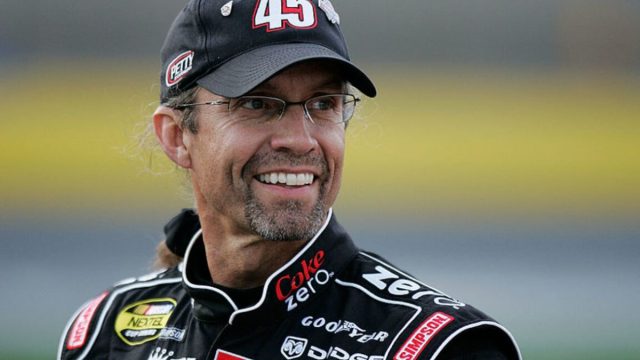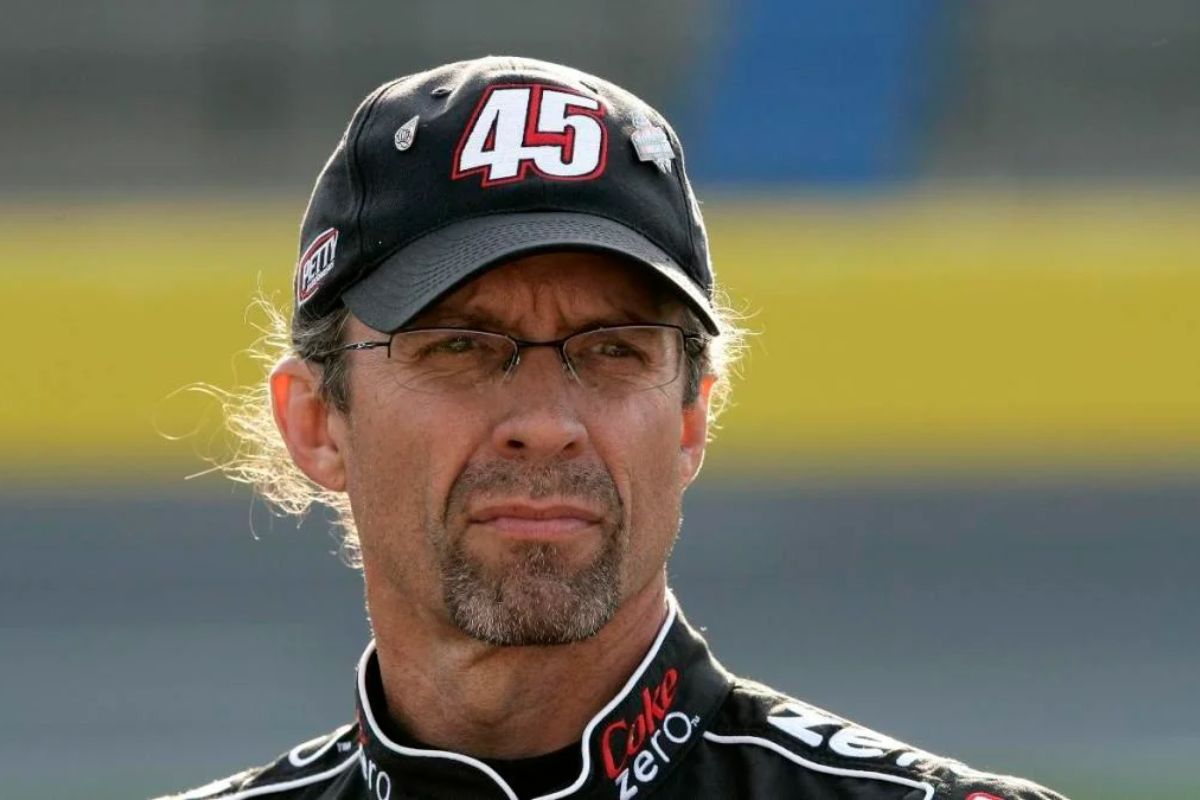Kyle Petty Criticizes NASCAR Drivers: In the aftermath of the chaotic Ally 400 at Nashville Superspeedway, NASCAR analyst Kyle Petty did not mince words in his critique of the drivers’ performance during the tumultuous overtimes. Petty pointed to an alarming frequency of cautions and avoidable collisions, questioning whether the aggressive tactics deployed on the track undermine the essence of strategic racing. His remarks suggest a deeper conversation about the balance between competitive fervor and disciplined driving, raising critical concerns about the sport’s future direction.
Key Highlights
- Kyle Petty criticized frequent cautions as a sign of poor driver discipline.
- Petty highlighted preventable wrecks as a failure in strategic driving.
- He argued that chaotic overtimes tarnished the competitive integrity of NASCAR.
- Petty emphasized the need for improved racing discipline among drivers.
- He questioned the balance between aggressive driving and strategic skill.
Chaos and Controversy at Nashville Superspeedway
The Ally 400 at Nashville Superspeedway exemplified the unpredictable nature of NASCAR racing, as five extra restarts led to a prolonged and tumultuous end to the event. Initially scheduled for 300 laps, the race expanded to 331 laps, driven by a series of cautions and wrecks that disrupted the final stages. This marathon of chaos highlighted both the volatility inherent in the sport and the resilience required from the drivers.
Each restart presented a renewed opportunity for drivers to gain positions or, conversely, to fall victim to the aggressive tactics of competitors. This dynamic played out vividly at Nashville, as drivers were forced to adapt and recalibrate their strategies repeatedly. The prolonged race also emphasized the physical and mental endurance required in NASCAR, with drivers needing to maintain focus and precision over an unexpectedly long duration.
Moreover, the event raised questions about the implications of such extended races on both equipment and team strategy. The additional laps put unprecedented stress on vehicles, testing the limits of engineering and maintenance. Crew chiefs were tasked with making critical decisions under duress, balancing the immediate need for performance with the long-term durability of their cars.
From a broader viewpoint, the Ally 400’s tumultuous finale sparked a dialogue about the rules governing extra time procedures and their impact on race outcomes. While the spectacle of extended racing can heighten excitement for fans, it also introduces elements of unpredictability that can influence the results in unforeseen ways.
Kyle Petty’s Displeasure with the Race Dynamics
Kyle Petty emerged as a vocal critic in the aftermath of the Nashville Superspeedway’s tumultuous finale, condemning the frequent cautions and collisions that he perceived as a failure of driver discipline and strategy. Petty’s frustration was palpable as he reflected on the Ally 400, where the race dynamics were hampered by a series of preventable incidents. His critique centered on the apparent inability of top-tier drivers to sustain clean racing, which he argued detracts from the sport’s competitive integrity.
Petty’s analysis points to a broader concern within NASCAR circles: the balance between aggressive driving and strategic skill. He emphasized that the propensity for wrecks, particularly in the critical final stages of the race, suggests a lack of foresight and composure among drivers who should be setting the standard for excellence.
In Petty’s view, the chaotic overtimes at Nashville are symptomatic of a deeper issue within the racing community. The emphasis on sheer aggressiveness, at the expense of calculated risk-taking, undermines the sport’s essence. Petty’s critique is a call to action for drivers to elevate their approach, combining speed with savvy to improve the racing experience.
“These guys are trying to get everything they can on the restart. I completely understand but taking each other out, knocking each other out. These are the greatest drivers in the world and they can’t run three laps, what is up with that? They’ve got to be better about this, you can’t have that.” -Petty
His statements resonate with an audience yearning for a return to more disciplined, strategy-oriented racing, where the skill of drivers is measured not just by their audacity but by their ability to navigate the complexities of competition with precision and poise.
Dominance and Drama on the Track
Exhibiting commendable expertise, Christopher Bell dominated the early stages of the Ally 400, leading for 131 laps and securing both stage wins, setting the tone for what promised to be a captivating race. His performance was a showcase of precision and control, positioning him as the driver to beat. However, in a dramatic twist of events on Lap 228, Bell’s No. 20 Toyota lost traction, halting his pursuit of victory prematurely.
The final stage was a theater of drama, featuring intense duels for the lead, primarily between Denny Hamlin and Ross Chastain. This segment of the race was not without its share of chaos, as multiple incidents necessitated overtime restarts, reshuffling the field and infusing unpredictability into the competition. These restarts were a crucible of stress, testing the resilience and strategic insight of the drivers involved.
- Christopher Bell’s Dominant Lead: Bell’s early supremacy showcased his superior racecraft, maintaining control of the lead for a significant portion of the race.
- The Decisive Crash: Bell’s crash on Lap 228, a turning point that dramatically altered the race’s direction, highlighted the fine line between success and disaster in motorsport.
- Overtime Restarts: The frenzied restarts brought both opportunity and risk, as drivers navigated the volatile conditions to either capitalize on or defend their positions.
NASCAR Insider Criticizes Unlimited Restart Attempts
In the aftermath of the intense and chaotic overtime restarts, NASCAR insider Freddie Kraft voiced strong criticism against the race management’s decision to allow unlimited attempts, highlighting the significant financial impact and increased risk of wrecks. Kraft’s pointed critique focused on the volume of accidents resulting from the repeated restarts, which he quantified as causing ‘millions and millions of dollars of damage.’
“Millions and millions of dollars of s**t got torn up because we can’t figure out how to restart without running into each other. If the race is 300 laps, that’s it. If you want maybe one attempt a green white checkered but this is what happens when you have unlimited attempts, we just have unlimited wrecks running each other over.” – Kraft
Kraft’s comments emphasize a deeper concern within the NASCAR community regarding the current regulations governing overtime restarts. By permitting unlimited attempts, the sanctioning body inadvertently fosters an environment ripe for frequent collisions, thereby escalating both the physical and financial stakes of the race. The heightened risk of on-track incidents damage driver safety but also strains team resources, potentially impacting their long-term viability and competitive balance.

To mitigate these adverse outcomes, Kraft advocates for a revision of the existing overtime restart rules. His proposal includes instituting stricter regulations that limit the number of restart attempts, thereby reducing the propensity for chaotic and costly wrecks. This approach aims to strike a balance between maintaining the excitement of close finishes and ensuring the sustainability and safety of the sport.
News in Brief: Kyle Petty Criticizes NASCAR Drivers
The chaotic overtimes at Nashville Superspeedway highlighted significant issues in racing discipline among NASCAR drivers, as emphasized by Kyle Petty’s criticisms.
The frequent cautions and avoidable wrecks during the Ally 400 raised questions about the balance between aggressive driving and strategic skill.
Moreover, the practice of unlimited restart attempts was scrutinized, indicating a necessity for regulatory adjustments to maintain competitive integrity and improve the strategic aspects of the sport.
ALSO READ: Kyle Petty Criticizes Austin Hill Amid Sonoma Controversy



